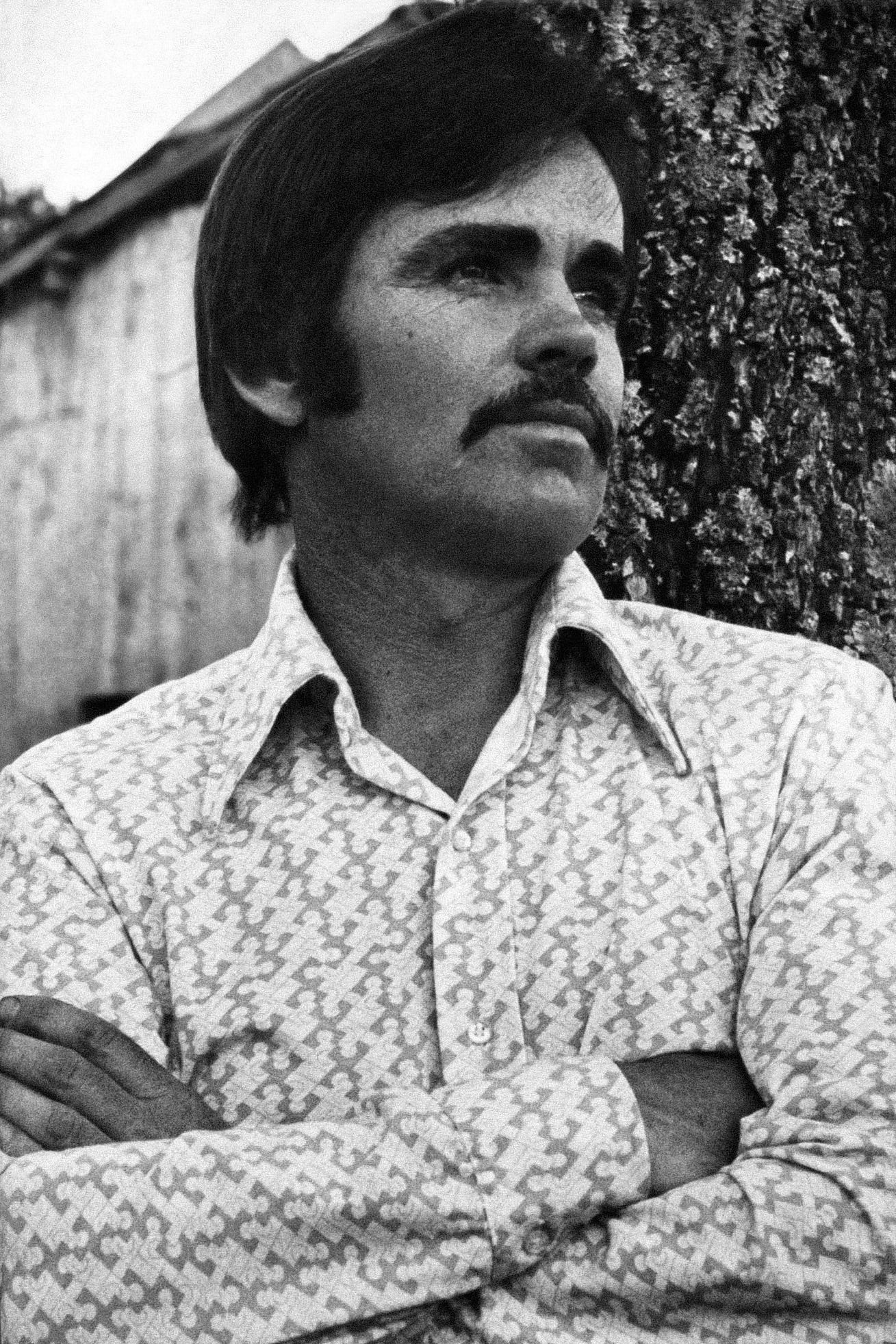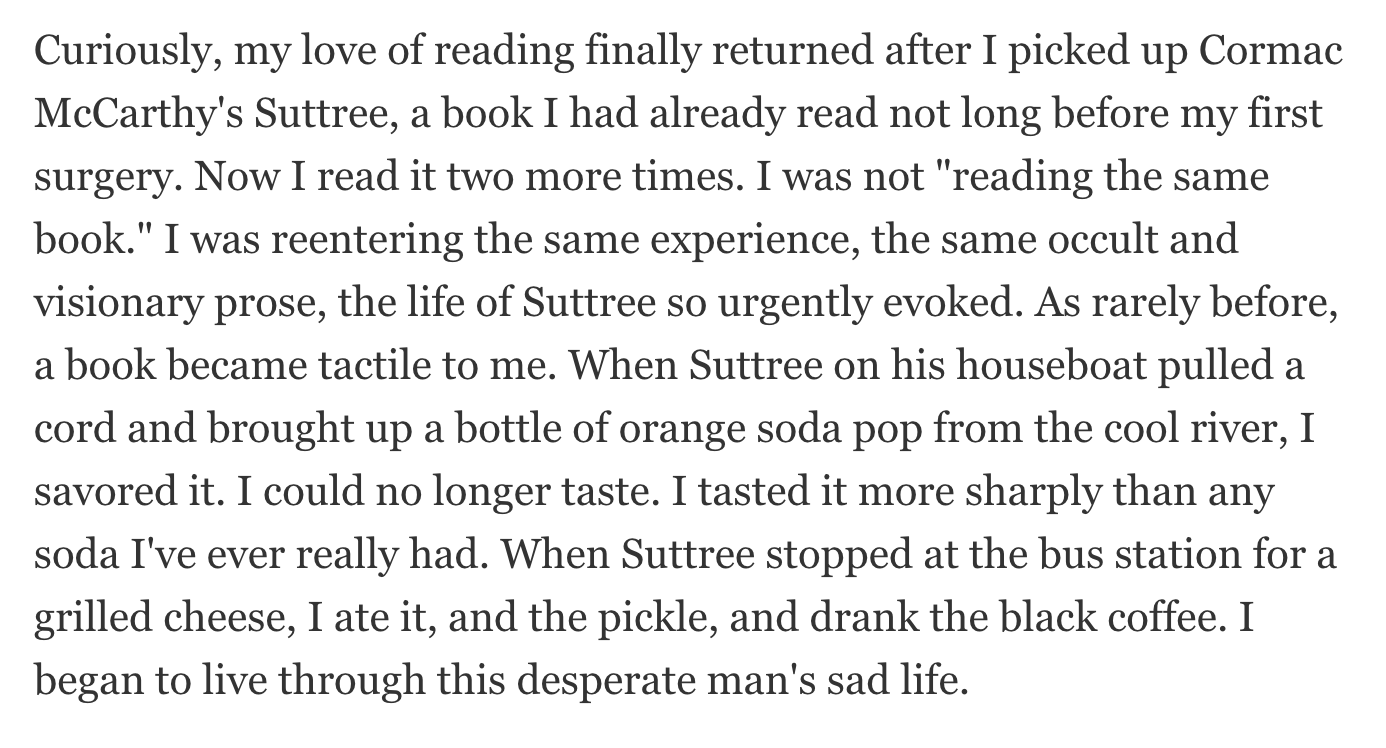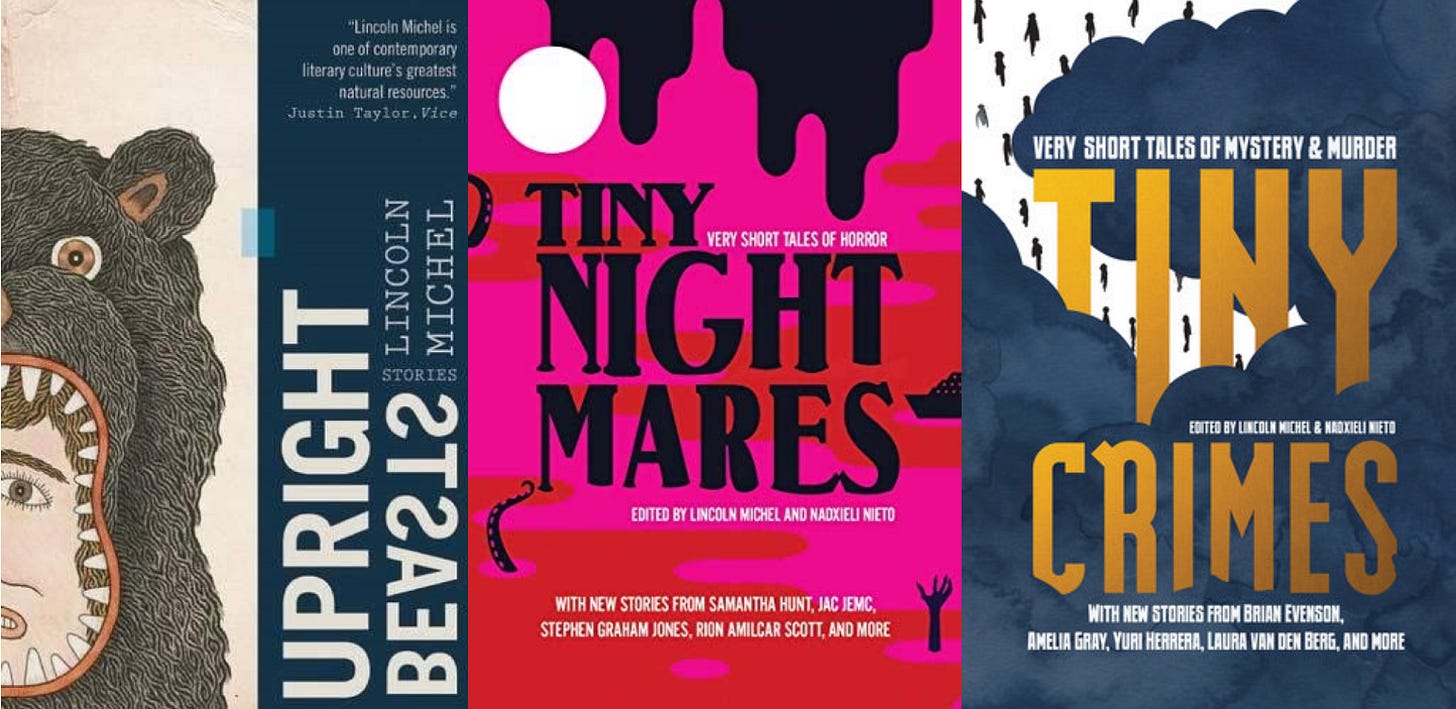The Loquacious Precision of Cormac McCarthy
On the style, sentences, and metaphors of the late master
As you’ve likely heard, Cormac McCarthy has passed away at the age of 89. Like many American writers, reading McCarthy was a profound experience for me. Few novels have haunted me or rewritten my ideas of what sentences can do like Blood Meridian or Child of God. McCarthy is in a rare pantheon of American writers—Toni Morrison and William Faulkner would be two others—whose words seemed to be transported here from some other, lusher world.
Many others have and will write great tributes to McCarthy’s career. (Here’s Lorentzen in the Financial Times.) But I thought I’d use this newsletter to just talk a little about McCarthy’s mesmerizing style.
If you haven’t read much McCarthy, or only know him as the author of the novels that the films No Country for Old Men and The Road were adapted from, you might not be aware that McCarthy underwent a profound stylistic shift halfway through his career. His early novels (mostly set in the South) are written in a dense and lovely Southern Gothic style. His later and not coincidentally better-selling novels like All the Pretty Horses and The Road (mostly set in the West) are written in a stripped down and spare style. Those later novels have their merits but, for my tastes, they don’t hold a candle—a wax cylinder whose blackened wick flickered on the filthy table in strobic flashes like the last vestige of hope in unknowable void of gloom and misery that is the final fate of all mankind—to his early novels.
McCarthy’s early style is part Faulkner, part Biblical, darkly comic, and frankly often a bit absurd. It’s hard not to want to immediately parody it even as you revere it. But really what’s wrong with a little absurdity? His sentences are over-the-top sometimes yet this is exactly what allows them to climb to transcendent heights.
Here’s a passage from the opening chapter of Child of God (1973):
To watch these things issuing from the otherwise pastoral morning is a man at the barn door. He is small, unclean, unshaven. He moves in the dry chaff among the dust and slats of sunlight with a constrained truculence. Saxon and Celtic bloods. A child of God much like yourself perhaps. Wasps pass through the laddered light from the barnslats in a succession of strobic moments, gold and trembling between black and black, like fireflies in the serried upper gloom. The man stands straddlelegged, has made in the dark humus a darker pool wherein swirls a pale foam with bits of straw. Buttoning his jeans he moves along the barn wall, himself fiddlebacked with light, a petty annoyance flickering across the wallward eye.
This is classic early McCarthy for me. Lush, lovely, and full of archaic words. Simultaneously a bit ridiculous and utterly spell-binding. Who knew a description of pissing on dusty straw could sound so good? This is not to say that McCarthy didn’t know the value of a short, simple sentence even in his Southern Gothic days. When I was the EIC of Electric Literature, I commissioned Matt Bell to write about McCarthy’s use of the simple “[he/she/they] smiled.” But, whew, did the man know how to write a sentence.
I almost wrote about the above passage last month, when I ranted a bit about metaphors that don’t actually make sense. So I’ll talk about it now. My issue in that linked newsletter is that too often contemporary writers seem to write long or lush sentences—especially metaphors—that work to produce “a vibe” but don’t actually make sense. The writers aren’t really thinking about how their images work or what meaning is being conveyed by their words.
What McCarthy’s sentences show is that one can simultaneously produce vibes/atmosphere/mood and actually make sense, even when you’re pulling out obscure words and loopy syntax. (The archaic language and syntax is, of course, part of what produces the unique atmosphere.)
Take my favorite sentence in that passage: Wasps pass through the laddered light from the barnslats in a succession of strobic moments, gold and trembling between black and black, like fireflies in the serried upper gloom. It has that that odd syntax and archaic language but also makes complete sense. The horizontal barnslats make the light look laddered. The wasps passing through the light seem to flash, like fireflies, in strobe-like flickers. The imagery is incredibly clear.
The rest of the passage is equally crisp and evocative from the “dark humus” of the man’s urine in the dirty barn floor to the man’s movements. You can see everything even in the dense language.
On Twitter, Ben Collins posted this great passage of Roger Ebert describing how at the end of his life when he’d lost the ability to taste and smell reading Cormac McCarthy evoked taste again:
No matter how loquacious McCarthy might get, he always remembered to be precise. To make the reader clearly see the movements and images he was conjuring. This loquacious precision is only one of McCarthy’s many talents, but it’s a skill every writer should strive to learn even if we’ll never reach the heights of McCarthy.
I’ll end with one more favorite passage (from Blood Meridian) showing a more philosophical side to McCarthy’s metaphors:
The truth about the world, he said, is that anything is possible. Had you not seen it all from birth and thereby bled it of its strangeness it would appear to you for what it is, a hat trick in a medicine show, a fevered dream, a trance bepopulate with chimeras having neither analogue nor precedent, an itinerant carnival, a migratory tentshow whose ultimate destination after many a pitch in many a mudded field is unspeakable and calamitous beyond reckoning.
RIP to a legendary writer. There’s no better way to honor him than to pick up a novel like Blood Meridian, Suttree, or Child of God and let the sentences ensorcell you.
If you like this newsletter, consider subscribing or checking out my recent science fiction novel The Body Scout that The New York Times called “Timeless and original…a wild ride, sad and funny, surreal and intelligent.”
Other works I’ve written or co-edited include Upright Beasts (my story collection), Tiny Nightmares (an anthology of horror fiction), and Tiny Crimes (an anthology of crime fiction).







What a gorgeous tribute. Thanks for the recommendation of his earlier work, which I haven't sampled. it will spur me on to do so.
Picked up Blood Meridian again today for what must be my 5th read. A masterpiece from a true great. Perhaps the greatest writer of the last 100 years.